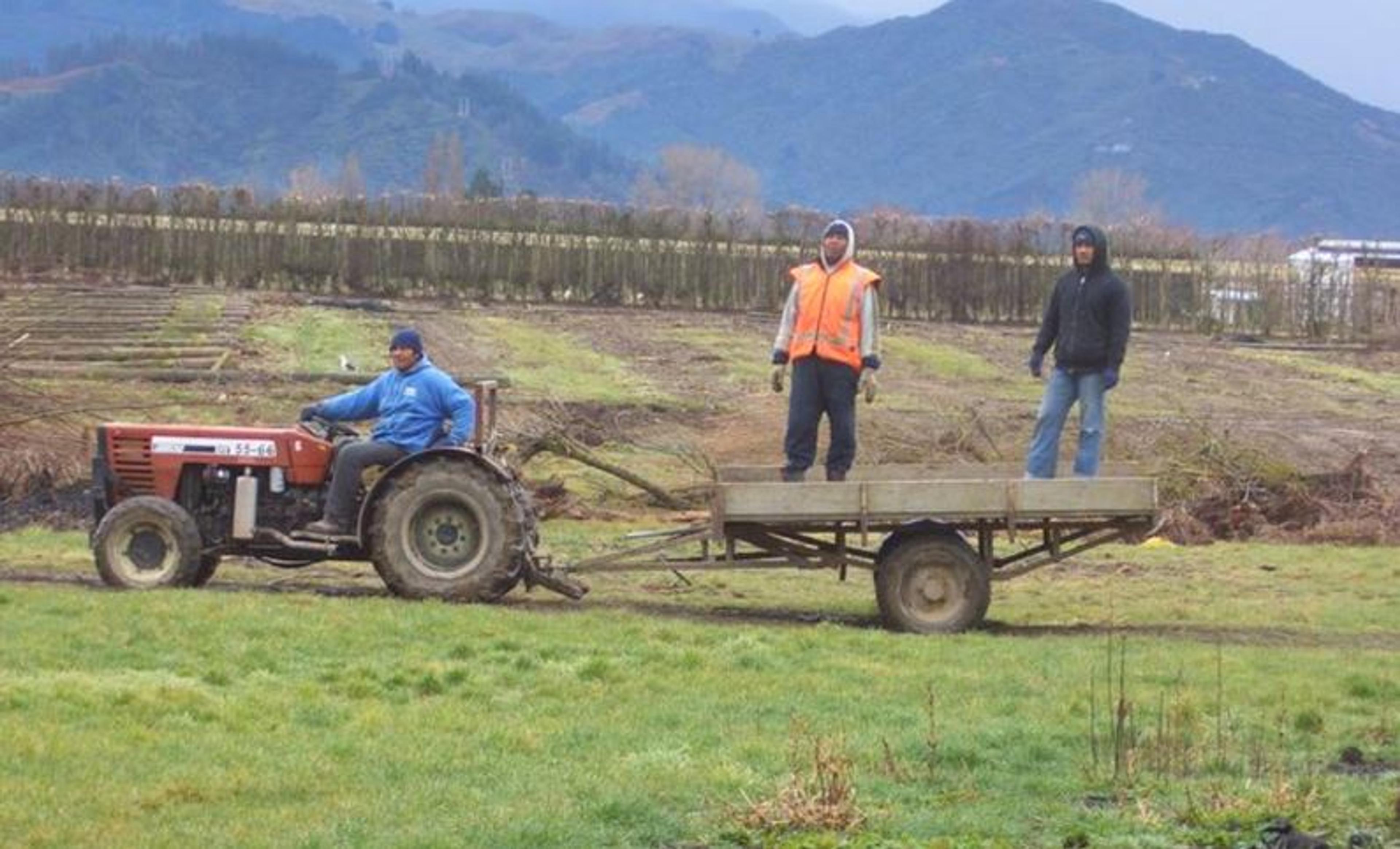

A new bill aims to add further safeguards for migrant workers to avoid exploitation. Photo/Charlotte Bedford
Photo/Charlotte Bedford
Concerns clamp down on migrant worker exploitation doesn't go far enough
A new bill will impose penalties for employers who don’t provide paperwork, and a name-and-shame public register of businesses who are convicted of migrant exploitation.




Report finds Pacific families hit hardest as material hardship and unemployment rise

Fijian leaders call for tough action on drugs including death penalty and urge army support


This Valentine's Day, swipe right on a new fur best friend with a tail


Report finds Pacific families hit hardest as material hardship and unemployment rise

Fijian leaders call for tough action on drugs including death penalty and urge army support
The government is boosting measures to stop migrant workers being exploited, but there are concerns it doesn’t go far enough.
The Worker Protection (Migrant and Other Employees) Bill is being introduced to Parliament today, as another step to protect the rights of an estimated 250,000 workers here on temporary or student visas.
“We must ensure that those who come to New Zealand to work are treated fairly and with dignity”, says Associate Minister for Workplace Relations and Safety Priyanca Radhakrishnan.
“They need to feel safe to speak up without fear of repercussions on their visa.”
The bill will bring in infringement measures for bosses who do not provide employment paperwork within a set time.
Employers convicted of migrant exploitation will be named on a public register, along with being banned from running a company.
Reports of migrant exploitation have skyrocketed to 956 from just 173 the previous year, but Radhakrishnan says more people speaking up is a good thing.
“Migrant exploitation has been a problem for quite a while in New Zealand, and it’s only now that we are getting a bigger picture of it.”
She puts this down to the Migrant Exploitation Protection Visa, which allows workers to leave their job quickly while exploitation is being investigated, and an 0800 number where workers can raise concerns about their situation.
“The 0800 number also has provision for about 180 languages for those who need translation, so that for those whom English isn’t a first language that isn’t a barrier to reporting.”
Althoug the government has introduced sick leave and minimum wage requirements, Radhakrishnan says about a third of migrant workers are at risk of exploitation because they don't know their rights, or feel they can't report issues out of fear of losing their job.
“We need to ensure we educate migrant workers so that they know their rights, better protect those who have been exploited by providing further access to support, and hold exploitative employers to account.
“Introducing infringement offences will ensure that even lower-level offending such as refusing to provide employment documentation, are dealt with before it becomes more serious.”
The Government is also starting a community-led education pilot and introducing worker protection legislation to the house.
“Working with community and industry networks that already support migrant workers and employers of migrants is an obvious step we can take to bridge this education gap.”
Is it enough to make any difference?
But Green Party MP Ricardo Menéndez March says the bill doesn't go far enough, and wants migrant workers to be able to change employer, and has repeated calls for overstayers to be given amnesty.
“The Government is still allowing employers to have control over people’s lives and their ability to stay in the country, which can force people to accept unfair wages or unsafe working conditions.
"The only way to avoid this is to allow people to come here and make their own decisions about where they work, rather than being beholden to one employer.
“People spoke to us about the feeling of powerlessness they felt when their employer had so much control over their lives and ability to stay in the country, leading to people feeling forced to accept conditions most New Zealanders would find unacceptable.”
Amalgamated Workers Union Secretary Robert Popata welcomed today's announcement, but says workers should be able to "roam the industry" so the free market can dictate where the best workplaces are.
“Why can’t workers go to the good employers and leave the bad employers by themselves?”
He says having a public list of businesses who break the rules is a positive step because it puts the onus on the employer, not the employees, "so the employers will be under no illusions that they need to behave".
Radhakrishnan admits this doesn’t stop companies hiring workers as contractors, which bypasses some of their responsibilities as an employer.
“It’s not the panacea and there will be other work when it’s required.”